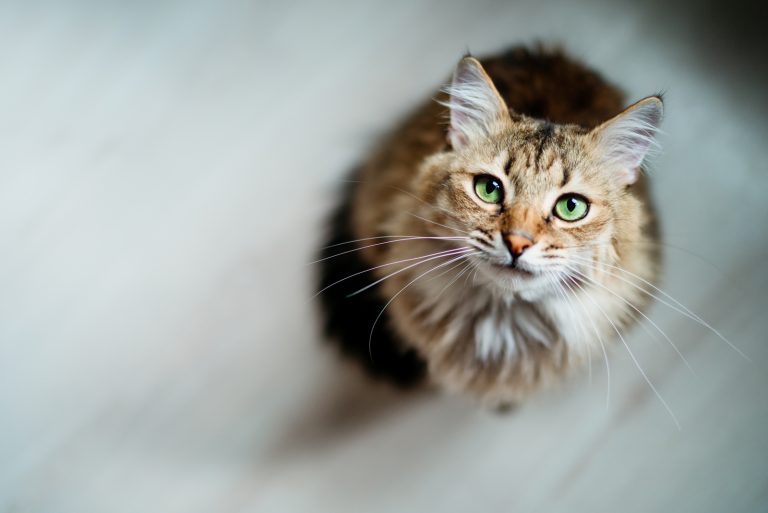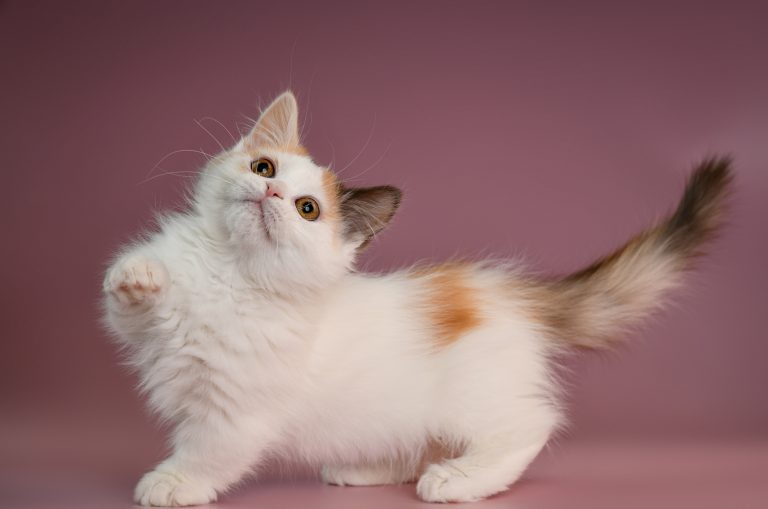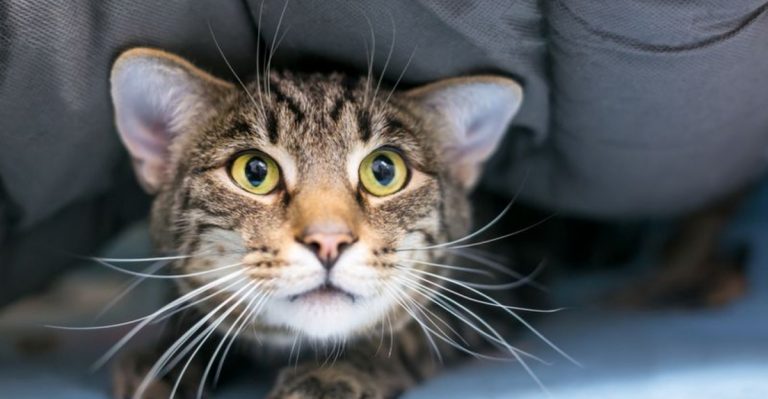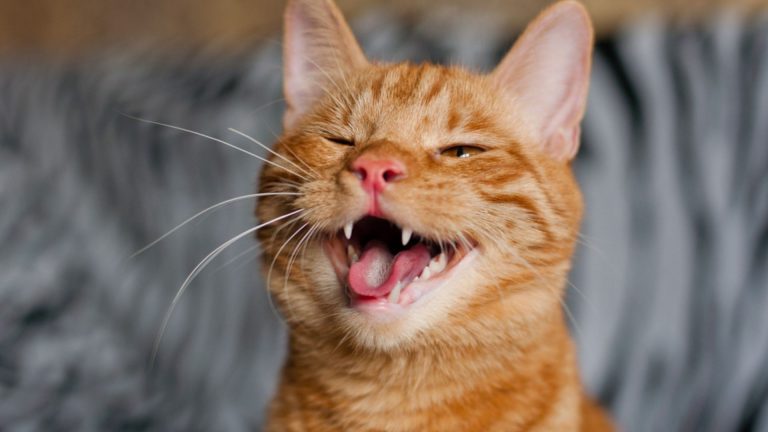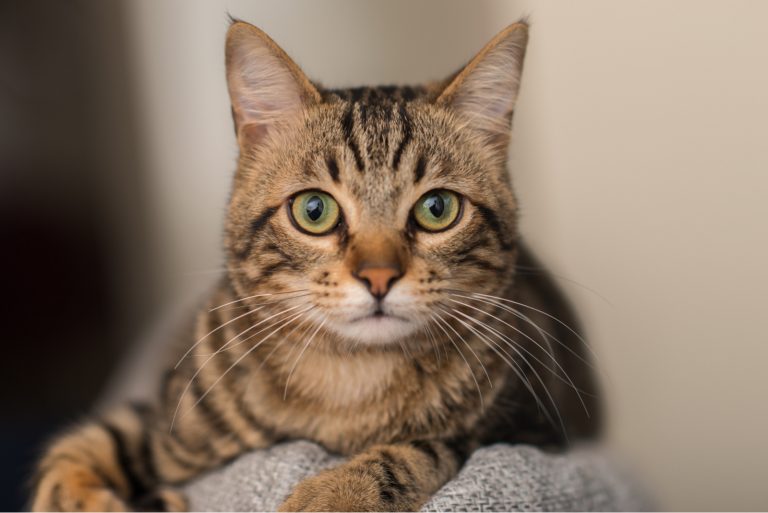Should I Leave My Dying Cat Alone? A Helpful Guide
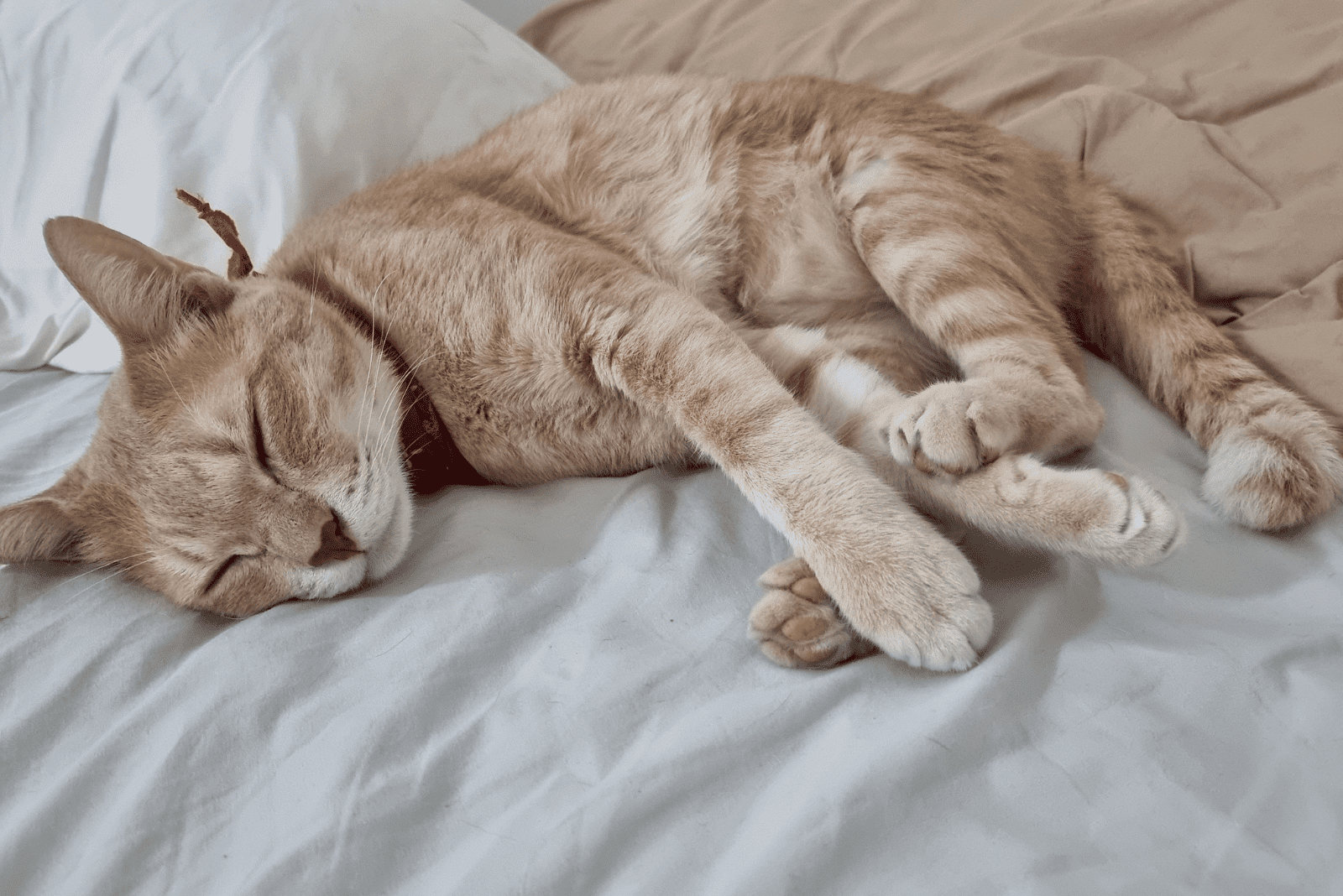
Most pet owners feel that their cats (or dogs) have made their lives so much better. Pets usually do that! I personally believe that every human should own a pet at least once in their life.
The death of a pet is absolutely heartbreaking, but compared to all the love and fun we get from them throughout their entire lives, it is a low price to pay.
Cats truly enrich our lives. Unfortunately, losing them is an inevitable part of owning them. If the time has come for your pet and you are wondering Should I leave my dying cat alone? The simple answer is no. Our cats need us close in their final moments of life.
Continue reading to learn about the most common signs your cat is reaching the end of its life and what you can do to make its final days with you as comfortable as possible.
Should I Leave My Dying Cat Alone To Die?
Some cats prefer to stay close to their humans until they die, while others prefer to hide away and isolate themselves. Some may even leave home to die alone. If they do this, it might feel like they don’t love their owners anymore, but that isn’t the case; your cat is just following its natural instincts.
Living alone in the wilderness, a wild cat relies on its survival skills to hunt for food, avoid lurking predators, and find shelter. When death approaches, instinct kicks in and many cats go into hiding to be left safely alone.
This is why you may notice that your cat hides more often and perhaps doesn’t want to be petted or disturbed.
The cat understands that he/she is dying and cannot find help, so they isolate themselves and sneak away. They have a natural instinct to do this to escape predators. When they are sick or nearing the end of their life, they feel like easy prey.
Domestic cats, unlike wild cats, don’t have lurking predators to hide away from, but these instincts are part of their innate nature. They are extremely vulnerable during their final days, so they isolate themselves to stay safe.
Cats are really good when it comes to keeping their illness a secret, so it’s natural for them to want to be alone at the end of their life.
Your cat still loves you and feels connected to you, it is simply following its natural instincts that it cannot ignore. You should indulge your cat’s desires and let it have some privacy, but that doesn’t mean you have to stay away completely.
Signs Your Cat Is Reaching Their Final Days
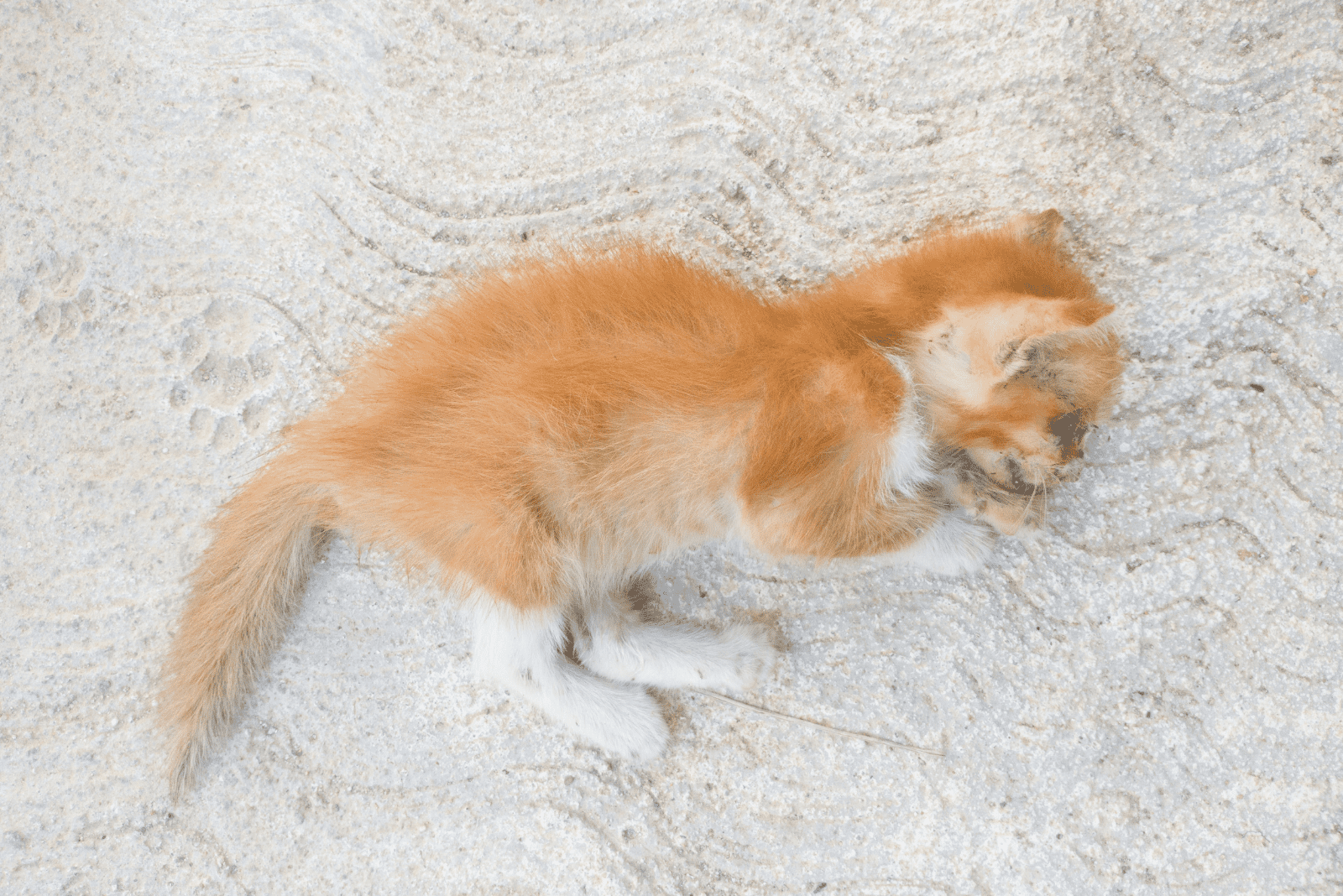
Every cat is different, but there are some common signs that will help you realize that your cat might be reaching the end of its journey.
Hiding Away
Hiding is an obvious sign of illness in cats, but it can be difficult to define. Many cats tend to hide a lot during their entire lives.
Things you need to watch out for include excessive hiding, your cat hiding in new places, and missing routine events such as mealtimes.
You might want to check out: Do Cats Forget Their Owners? Here’s The Answer!
Increased Weight Loss
Weight loss is very common in senior cats. Some of this is due to normal muscle atrophy and lack of energy as they age.
As cats get older, their bodies become less efficient at digesting food, and they’re not building protein levels as before, so they lose muscle mass. Therefore your cat might still be losing weight, even though it empties the food bowl regularly.
After a while, weight loss can get quite extreme. Some older or sick cats get very skinny, with their ribs and hip bones sticking out visibly from under the skin.
Cats can suffer from cancers that cause weight loss, among other things. Cats suffering from chronic kidney diseases or kidney failure, and/or hyperthyroidism will often experience weight loss as well.
Loss Of Appetite
If your cat is not feeling well, for any reason, he/she may not want to eat.
If your cat has been diagnosed with an illness and is being treated for it, some medications affect the cat’s sense of taste and smell. This can impact your cat’s appetite very quickly, even causing changes the very next day.
Heat the cat’s food a little or add some tuna juice to enhance the smell and get your cat interested in the food.
There are also vitamins, or medications your vet can prescribe that may help your cat want to eat again. If your cat is dying, you may not be able to feed it at all.
Weakness & Lethargy
As your cat gets closer to the end of their life, it may become less and less active. Your cat might sleep more and be weaker when it wakes up. Some cats may appear to exhibit sadness, anxiety, and/or lethargy.
See also: Cat Suddenly Lethargic And Weak – Causes & Treatment Options
Your Cat’s Just Not Thirsty
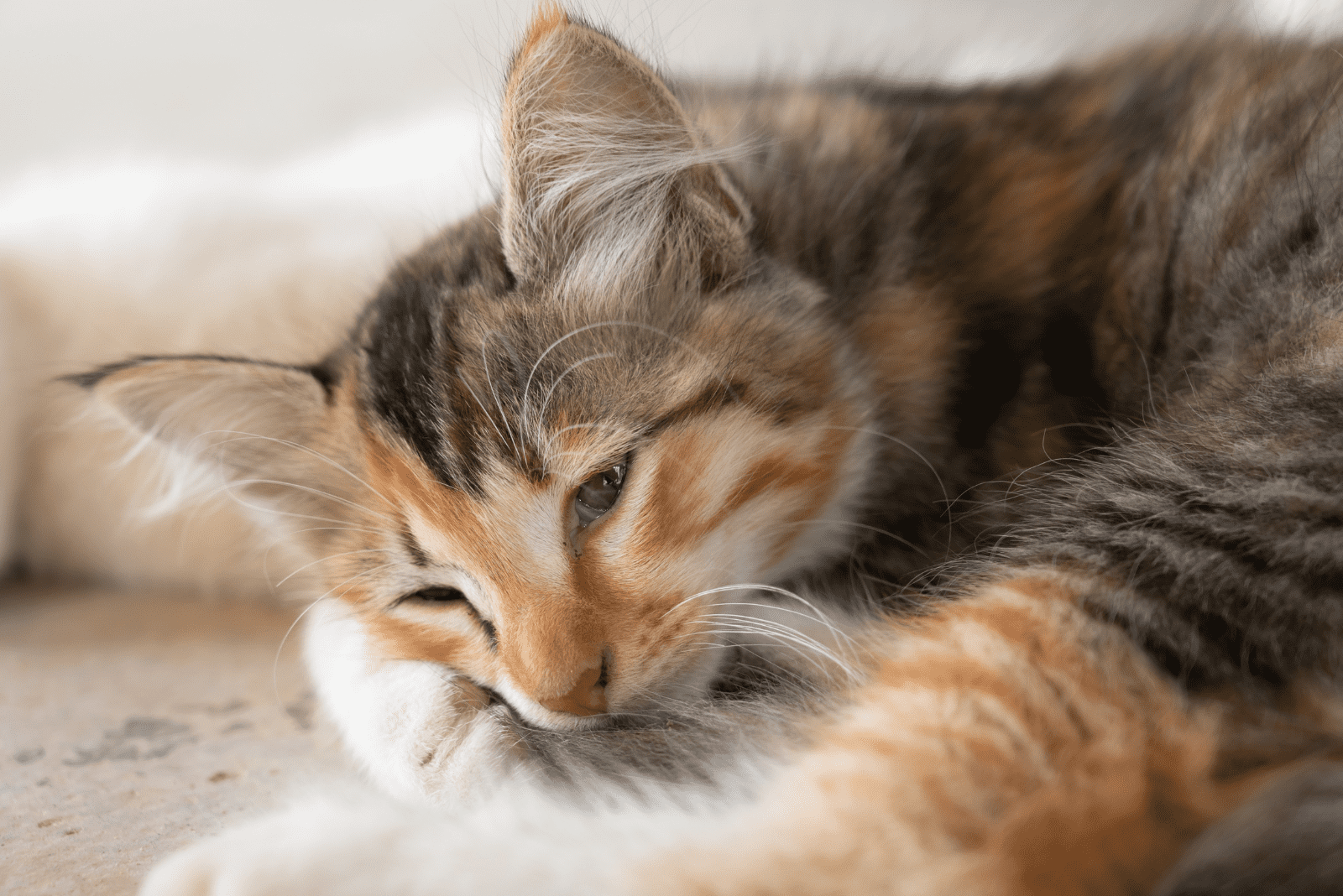
Sick cats are often not interested in drinking and can become dehydrated quickly. If your cat is still eating, you can increase its fluid intake by giving it wet food or adding water to its food.
In some cases, if your cat is simply avoiding its water bowl, you can give it water through a syringe or a small squirt bottle. This should be done extremely carefully.
You need to point your cat’s nose down and put only a tiny drop of water into its mouth, one drop at a time. Never force it!
If you force your cat to drink a lot of water at once, water can enter the windpipe and go into the lungs, causing asphyxiation or aspiration pneumonia.
Mobility Problems
Older cats often have reduced exercise capacity due to muscle wasting and pain from arthritis, as well as other health problems. Starting with small things such as being unable to climb stairs and or getting in and out of the litter box.
You can help your cat by giving them easy access to everything they need.
Provide ramps or steps to make it easier for your cat to safely access its favorite nap spots and resting areas. If your cat has arthritis, your veterinarian can prescribe a safe pain reliever for your cat to make it more comfortable.
Inability To Regulate Body Temperature
Senior cats often have trouble regulating their body temperature and are a lot more sensitive to the outside temperature, i.e. to extremes of heat and cold, than other healthy adult cats.
Even with a warm bed and cozy environment, a dying cat often has a low body temperature. Your cat’s limbs may feel cool to the touch.
No Reaction To Treatments
Many of the ailments that plague older cats can be controlled long-term with medication and other treatments. Over time, cats may require more medication or become less responsive to treatment.
This may indicate that their bodies are no longer able to process and use the medicine normally.
Changes In Your Cat’s Behavior
Cats will exhibit behavioral changes when they are nearing the end of their lives. The precise changes differ from cat to cat, but it is important to understand that their behavior will change, and we need to do our best to take care of them and make them feel safe and loved.
Some cats become more withdrawn, grumpy, and irritable (this may be due to pain or cognitive impairment). Other cats will become more friendly and affectionate and want to be by your side all the time.
Sometimes cats suffer from cognitive dysfunction that affects them in a similar way to dementia in humans. These cats may roam your home at night and be noisier than normal.
Your cat may disappear for long periods of time, skip meals, or change sleep patterns.
Your Cat’s Breathing Pattern Changes
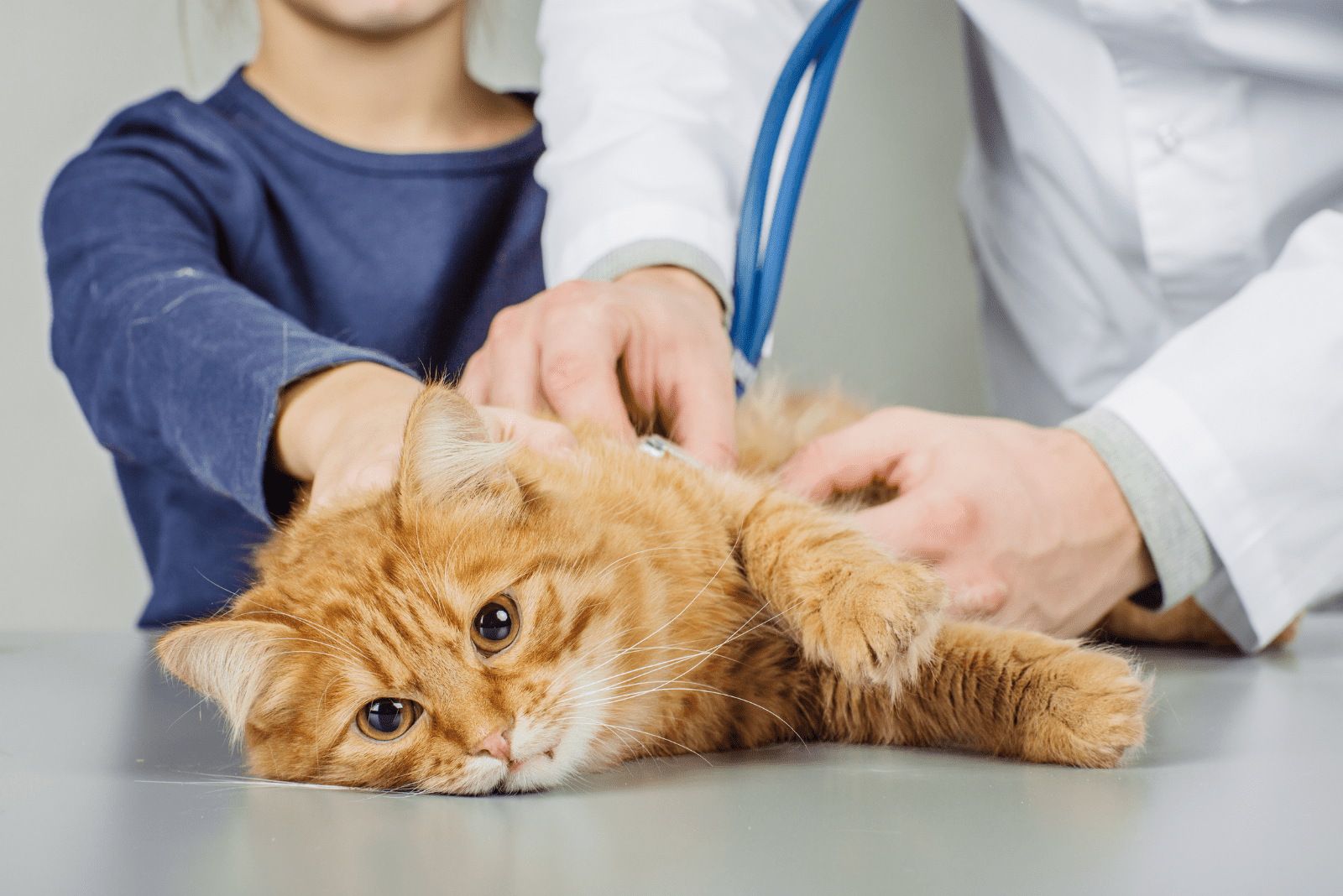
A cat’s lungs are regulated by muscles and nerves, which may deteriorate as the cat matures. A dying cat’s breathing pattern may be abnormal; it may be randomly quicker or slower.
The cat may even stop breathing for a brief period of time before restarting. Signs of difficulty breathing include breathing with the mouth open, keeping the head and neck straight from the body, and moving the abdomen excessively when breathing.
If your cat has these symptoms, she’s having a hard time getting oxygen to her body, which needs urgent care.
Cat’s Unkempt Appearance
Cats are known for grooming themselves for many hours daily! However, when sick, they simply cannot find the energy to do it.
This results in a greasy, tangled coat. With long-haired cats, it often results in matting, especially on the rump, lower stomach area, and behind their ears. Your cat may also have excessively scaly skin.
Gentle grooming with a soft cat brush will make it feel a lot better and cleaner, as long as your cat’s ok with it.
Your Cat’s Having Seizures
Seizures can be caused by many things, including metabolic problems related to illness and problems with the brain itself.
Seizures that last longer than 10 minutes or multiple seizures that occur in succession are emergencies. In some cases, a vet may be able to stabilize the cat and prevent seizures with medicine, but in some cases, will not respond to therapy.
Your Cat Smells Badly
As your cat nears the end of its life, it may develop an unusual body odor. This is because of the breakdown of tissue and the accumulation of toxins in the body.
The exact odor may vary depending on the exact underlying condition. Cats with diabetic ketoacidosis may smell unpleasantly sweet, while cats with renal failure may smell like ammonia.
Losing Interest In Life
As your cat’s health deteriorates, they lose interest in things that they used to enjoy. Your cat may no longer want to play with its favorite stuffed toys, they may reject their favorite treats, and even stop purring when you pet and cuddle them.
Being indifferent to their surroundings and not enjoying the things they once adored is a sign that your cat is ready to leave you.
How To Improve Your Cat’s Final Moments
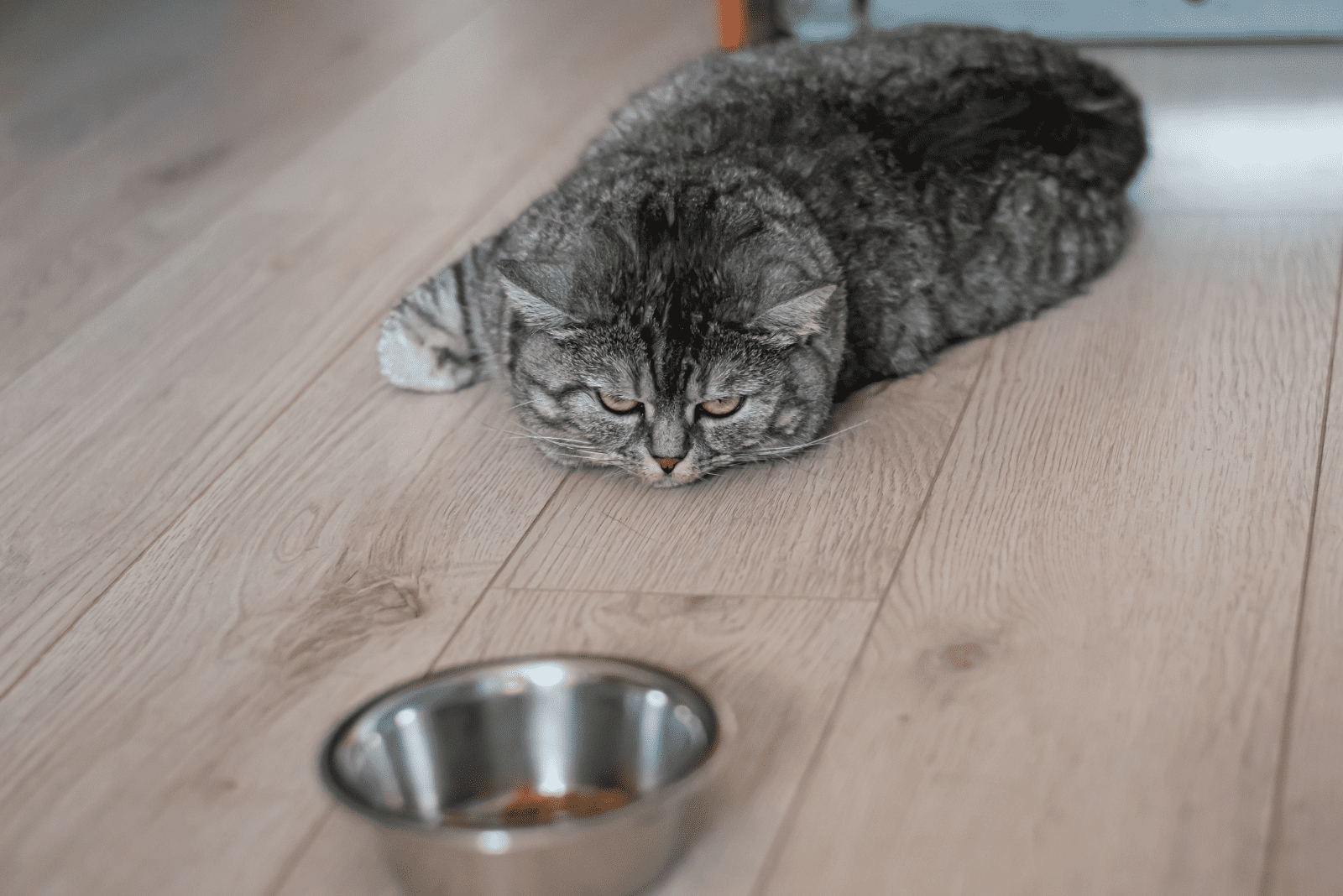
We all hope that our beloved cats reach their ends at an old age, so we have some time to prepare; at least we expect to lose our old cats. Unfortunately, we sometimes lose our pet cats to health issues.
Whatever the cause, however old your cat is, there are things we can do to improve the quality of life for our beloved pets.
The following are some examples of how you can comfort your cat when it nears the end of their life.
Provide Some Favorite Treats
You can be more relaxed about what to feed your dying cat. Cats love a variety of treats, and feeding them their favorite foods when their appetite is gone keeps them energized and alert.
Providing treats is better than having your cat eat nothing at all; it can prevent your cat from becoming skin and bone. Best of all, it’s a little pleasure for sick cats in their final days.
You may have had to keep an eye on your pet’s diet due to health issues, but in the last few days, you can let them enjoy some delicacies. If your cat has stopped eating, try using its favorite yummy treats to encourage him/her to eat their daily meals.
Hand feeding your cat can also help. This will prevent hunger pangs and give you one last chance to enjoy bonding with your cat.
Give Your Cat Meds
Older, dying cats probably don’t need medication. However, cats with painful or uncomfortable medical situations may need some pain medication to make them feel more at ease and relieve their suffering.
If you notice any of the following signs, it may mean your cat is in pain:
• Loss of appetite
• Anorexia
• Severe bleeding
• Exhaustion
• Difficulty breathing
• Excessive vocalization
In any case, don’t give your cat medication that has not been prescribed by a vet, as this could contribute to your cat’s health getting even worse, and this can cause more suffering.
You will need the assistance of the vet if you think your cat needs any medication.
Help Regulate Your Cat’s Temperature
A dying cat has a hard time regulating its body temperature. When they are sick, they do not maintain their temperature very well.
If it gets too hot, your cat will overheat and start gasping and become dangerously uncomfortable. If it gets too cold, there is a risk of hypothermia.
Therefore, it is necessary to keep the cat at the optimum temperature. Make sure the room your cat spends most of its time in is at a comfortable temperature.
Turn on the heater if it’s too cold, or use the air conditioner to cool your pet. Provide extra bedding, and provide your pet cat with a blanket or towel. Make sure your cat’s bed is not near heaters or drafts, and keep your cat out of the sun.
Create A Cozy Atmosphere
In addition to maintaining a comfortable temperature, you need to create a comfortable environment for your cat to rest in its final stages. This reduces anxiety, pain, and stress, making your cat’s last days or weeks more peaceful and bearable.
Put plenty of blankets on the cat’s bed. Arrange the bed, so your cat has enough hiding places to retreat to if it becomes uncomfortable or distressed. Wash the bedding every few days, and don’t use scented detergents as they can irritate your cat.
Another thing to watch out for is noise. Your cat will need plenty of peace and rest. Put your cat in the quietest room in the house and encourage your family to be as quiet as possible.
If you have other pets in your home, keep them separated and away from your dying cat.
Groom & Brush Your Cat’s Fur
Dying cats are almost always unable to clean and groom themselves like they used to.
A bath is likely to be too much for your pet, but a daily brush can remove tangles and knots and keep them more comfortable. Aim for areas that may be causing pressure.
Assist With Litter Box Visits
Some cats don’t like going to the litter box when they are unwell. This may be due to incontinence, muscle weakness, or difficulty moving. If your cat has problems urinating, you should take it to the litter box every few hours so that he can defecate more comfortably.
If your cat has an accident, do not yell at it or discipline it. Remove messes as soon as possible to avoid the spread of harmful bacteria, and change the bedding to keep your cat warm and comfortable.
See also: Cat Leaking Brown Fluid – Causes, Symptoms, and Treatment
Shower Your Cat With Attention
In the final days of your cat’s life, your cat may not react very well to you, but you being there, your presence and voice, will help your cat feel safe and find comfort.
Petting and cuddling actually cause an animal’s brain to release oxytocin, a neurochemical known as the “love hormone”. This chemical is proven to lower blood pressure and therefore help cats relax.
Depending on your cat’s condition, it may not be able to withstand a lot of contact. Pay close attention to your cat’s behavior, so you can see how much attention they want and leave them alone when you see they need a break.
If your cat doesn’t like being touched, sit next to it and speak in a soft, high-pitched voice. Doing this while reading a book makes the interaction natural. This also gives you the perfect opportunity to say your goodbyes.
Give Your Cat Some Privacy
I know it sounds contradictory to the previous section. Your cat needs affection in the last hours, but it also needs space. There are times when cats prefer to be left alone.
If your cat becomes angry or aggressive and bites or scratches you, it is clear that they aren’t in the mood for your presence at the time.
In fact, you may be stressing your cat, which can make them feel even worse and more distressed, and your cat simply doesn’t have the energy to fight back. Look out for signs that your cat is overstimulated and wants to be alone.
Do Cats Feel The End Is Near?
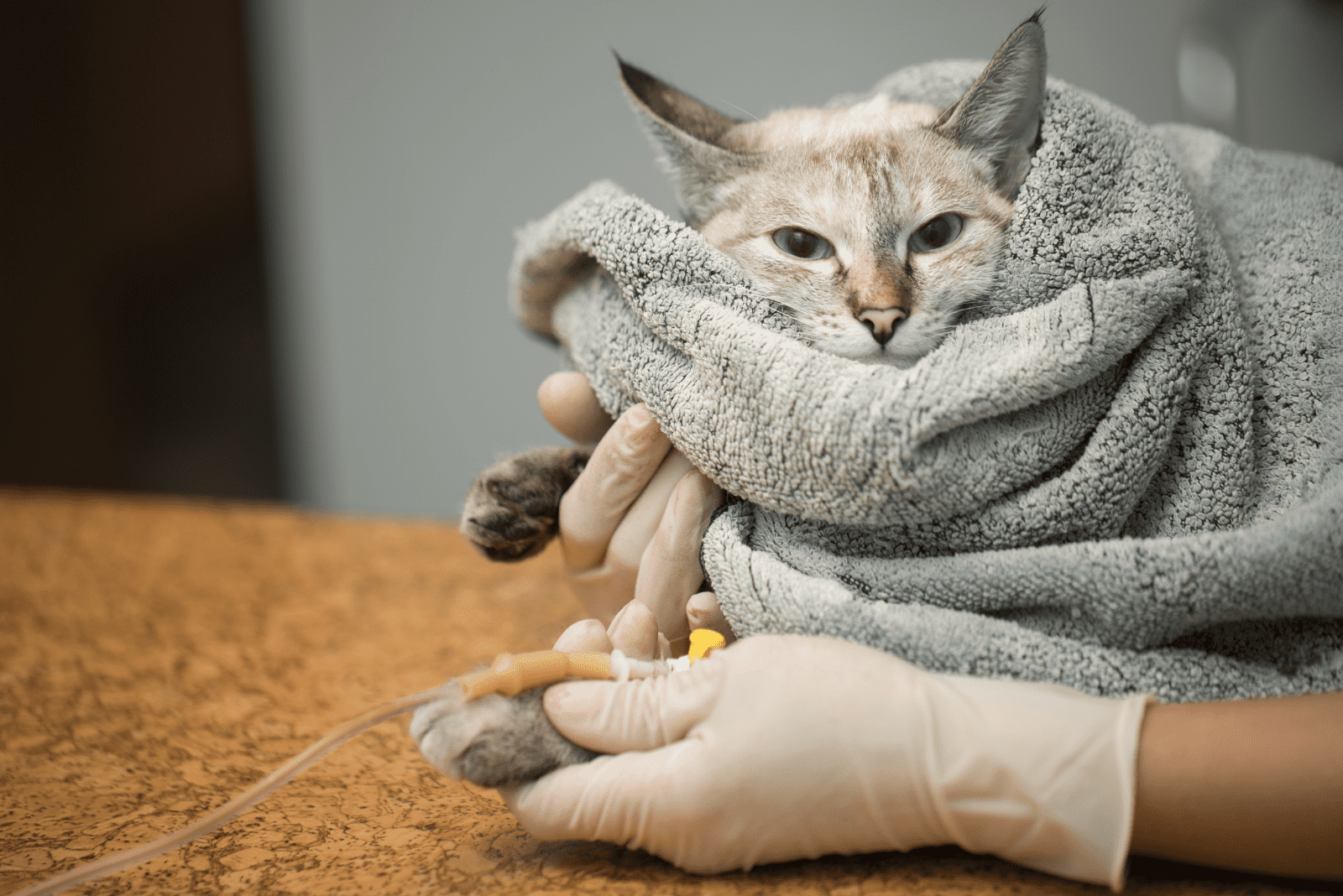
Cats are intuitive creatures who perceive things that we cannot perceive. They are highly connected to their bodies and can understand intuitively when something is not right.
Their senses, such as sight, hearing, and smell, are different from ours, so they pick up on cues that we are usually unaware of.
For example, if your cat can detect changes such as a change in its smell, it may be able to tell that its body is weakened and not functioning properly anymore.
Similarly, cats can also experience a lot of pain and discomfort. When they are not feeling well, they can sense that something bad is happening to them, even though they might not realize that they are going to die.
As a result of this, cats might exhibit negative behavioral changes.
Pets appear to know when they are going to die, and there are many stories from cat owners who believe their cat was aware of what was happening and were able to spend those meaningful last hours with their cat.
We would all like to believe this to be true, but whether or not cats really understand that they are dying is rather difficult to say.
Cats form very strong bonds with their favorite owners, but they can’t exhibit the same level of emotion and affection that humans can.
Most veterinarians agree that it’s impossible for cats to know for sure when they will die.
Watching a cat die is painful, and the last few days are sure to be stressful. But as long as you’re doing everything you can for your pet, you can take comfort in knowing that your cat feels loved and that it is comfortable and relaxed.
What To Do Before Your Final Farewell
You should try to spend as much time with your cat as possible, but respect their boundaries and only do what your cat has the strength and energy to do. Here are a few things I would advise you to do:
• Look back at beautiful memories
• Give special treats to your cat
• Sit in the fresh air with your cat
• Take a photo to commemorate
• Let your cat sleep in its favorite place in the house
• Pet and snuggle your cat as much as you can (as long as you don’t irritate them)
When your cat is near the end, prompt your family to bid it farewell too, and encourage them to tell the cat how much they love them. This will forever be a happy memory for all of you to look back on and cherish.
Taking Care Of Your Dying Cat
You should not leave your cat alone in its final hours, but you do have some difficult decisions to make.
Some cats just go peacefully in their sleep, while others have it harder on their last day. You can let your cat pass away naturally, or you can opt for euthanasia. There is no correct answer.
You should choose the option that seems best for you and your cat. If you are not sure, consult your vet for advice.
Don’t wait to discuss your cat’s health and prognosis with your vet; talk to them as soon as you can. Talk to your family and anyone who might be of help and support to you.
If you choose to receive at-home care until your cat dies, follow the steps above to keep your cat comfortable.
Euthanasia can be a rather scary decision for cat owners, but depending on your cat’s situation and the vet’s advice, sometimes the best option is to end your beloved pet’s suffering.
If it comes to that, your vet will have to advise that they give the cat an injection so it can pass away quickly and painlessly. Of course, it won’t be painless for you.
When I was younger, back in high school, my cat got hit by a car and was severely damaged.
Taking him to the vet and having him euthanized was one of the hardest things I had to do in my life, but it had to be done. I hope you don’t have to make the same decision, but if there is no other way, then you must do what’s for the best.
See also: How To Euthanize Cat At Home: A Step-By-Step Guide
Unfortunately, Death Is Inevitable
When your cat dies, you have the option of cremation or burial. When the time comes, you can arrange everything with your vet.
How will you know when it’s time? Well, most cat owners have a gut feeling about their pets or have had advice from their vet that their cat may be nearing the end. You can look out for the following things:
Pay attention to your cat’s behavior and its good and bad days. Every cat, just like anyone else in the world, has bad days on occasion. However, if there comes a time when there are only bad days followed by more bad days, it’s a bad sign.
Monitor whether your cat appreciates its favorite things like it once used to. Does your cat still enjoy its favorite treats? Does it want to play when you dangle its favorite toy in front of it? Does your cat still purr when you pet it?
Talk to your vet about any changes in your cat’s behavior.
Discuss your feelings with friends and relatives. Use their support to help you figure out how you want to manage your cat’s death. It may seem odd to talk to your cat, but it does help you come to terms with what is happening.
Allow Yourself To Grieve
It’s perfectly normal to mourn the loss of your cat. Your pet was a vital part of your life, like a family member, providing companionship and affection.
If you have other pets, provide them with plenty of affection and act normally because our pets can feel our pain, and we don’t want to stress them out too.
No other pet can replace your cat, but they all add something different to our lives and are unique in their own way. Look through old images and videos to remember your pet and think of ways you can honor its memory.
Finally…
The death of a pet is truly heartbreaking, but the price to pay is small compared to the love and enjoyment we get for the entirety of their lives. Cats really enrich our lives, but unfortunately, death is inevitable.
I hope I have helped with your inquiries and soothed any doubts. If you are wondering Should I leave my dying cat alone? The short answer is no. Our cats need our closeness during the last moments of their lives.
When it’s time to cross the rainbow bridge, our cats need to feel our presence, hear our voices, and feel all the love we have for them.
Do not abandon your beloved cat in its final moments, no matter how hard it is for you to face. Take care of your pet until the very end.
You will look back at those moments, even if they are tough, and be happy with your decision to stay and care for your best feline friend!

